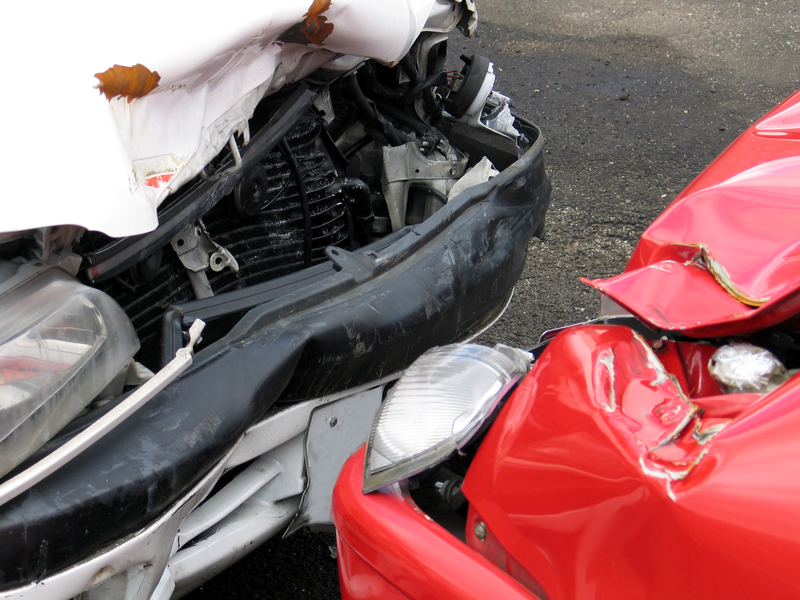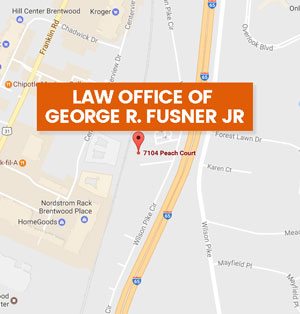Aggressive driving has been recognized as a factor in many road rage incidents as well as fatal wrecks that occur on U.S. roadways. [Source: III]. A person is said to be engaging in aggressive driving when they “commit a combination of moving traffic offenses so as to endanger other persons or property.” In a 2009 study that was conducted by the American Automobile Association, it was determined that aggressive driving played a role in 56% of fatal crashes that occurred between 2003 to 2007, with excessive speed serving as the number one factor, cites the III. Still, to this day, aggressive driving serves as a factor in many of the wrecks that transpire on U.S. roadways.
Aside from speeding, there were some other factors noted in crashes that indicated a driver was operating their vehicle in an aggressive manner. These include:
- Following improperly.
- Improper or erratic lane changing.
- Illegal driving on the shoulder of the road, in a ditch, or on a sidewalk or median.
- Passing where it is prohibited.
- Operating a vehicle in an erratic, reckless, careless, or negligent manner or changing speeds suddenly.
- Failing to yield right of way.
- Failure to obey traffic signs, traffic control devices, or traffic officers
- Failure to observe safety zone traffic laws.
- Failure to observe warnings or instructions on a vehicle displaying them.
- Failure to signal.
- Driving too fast for conditions or over the posted speed limit.
- Making an improper turn.
Motorists often begin to display signs of aggressive driving when they are feeling angry, frustrated, or come in contact with another driver that seems to impede on their ability to get where they need to go. Now, “frustration and anger do not always result in aggression,” says the Arizona State University Center for Problem Oriented Policing. “Driving aggression [may] occur when a mix of personal, situational, environmental, and cultural factors combine to reduce the inhibitions most drivers feel against acting aggressively.”
Here’s an example of when a driver might begin to display signs of aggression.
Pete is a resident of Nashville, TN who woke up late for work. With only 20 minutes to spare, Pete must get to his place of employment before he is officially late. As he is rushing through traffic, already flustered, he finds himself positioned behind a car that doesn’t seem to be in a rush like he is. He quickly becomes frustrated which then leads to him developing feelings of anger. He attempts to speed around the driver but becomes blocked by the traffic traveling on both sides of him.
Pete begins to follow the car ahead closely to prove a point but doesn’t realize traffic has begun to slow. Given the short distance between him and the vehicle in front of him, he doesn’t have time to stop when traffic comes to an abrupt stop. Pete rear-ends the vehicle in front of him. Had Pete kept his cool and refrained from allowing his frustration to get the best of him, he likely could have avoided the crash.
Which demographic is more prone to engaging in aggressive driving?
ASU has cited research that suggests “that the largest group of aggressive American drivers is poorly educated white men under the age of 30 who drive high-performance vehicles.” This statistic is driven from data that reveals a “strong correlation between such young white men and violent crimes, serious traffic offenses, license suspensions, and minor moving violations.” Research also suggests that younger people “tend to lack the impulse control gained with age, and men tend toward more aggressive behavior than women.”
ASU also identified two primary personality types that are more prone to becoming aggressive when behind the wheel. The first is an individual with an antisocial, hostile personality and the second is someone who is competitive. Now, despite what research says, anyone can display aggressive behavior while they drive, especially when the right conditions are present.
Were you involved in a crash in Nashville, TN that was caused by an aggressive driver?
If an aggressive driver crashed into your vehicle in TN resulting in you suffering injuries, we do recommend that you contact Nashville, TN car wreck attorney George R. Fusner Jr. Depending on how severe your injuries are, you might be entitled to recover a substantial amount of compensation from the other driver’s insurer. In the event they are not insured or aren’t carrying enough insurance coverage to compensate for your damages (i.e. underinsured), your circumstances may permit you to still file a personal injury lawsuit against him/her.
To find out if you have a viable case against the driver who you were involved in a wreck with, contact the Law Office of George R. Fusner Jr. today.
You can reach the Law Office of George R. Fusner Jr. at
7104 Peach Court
Brentwood, TN 37027
Phone- 615-251-0005
Fax- 615-379-2303
Website: www.gfusnerlaw.com




